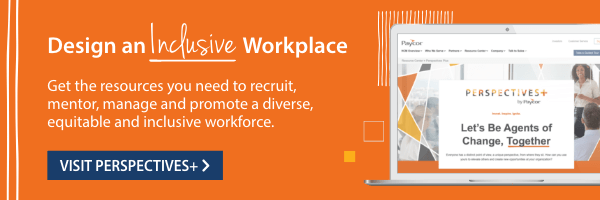Even if you’re not familiar with the term microaggressions, you might have heard them before: “Smile more,” or “you’re really articulate,” or “isn’t that popular with your people?”
Here are a few more concrete examples of microaggressions:
- People who continually mispronounce a person’s name or give them a nickname, so they don’t have to pronounce it correctly.
- Constantly interrupting women in meetings.
- Over-explaining technology to older colleagues.
What Are Workplace Microaggressions?
Microaggressions are insensitive statements or questions based on stereotypes. They can happen to anyone, regardless of gender, race, physical ability, or even role. Anyone can be the victim of microaggression, from hourly workers to the CEO.
Are Microaggressions Considered Harassment?
Microaggressions are not necessarily, in and of themselves, harassment. But they can lead to harassing behaviors that over time can build a hostile work environment or be part of a pattern of sexual harassment.
To get a full understanding of ways to prevent workplace microaggressions, we asked CEOs, founders, and managers of companies across industries one question:
“Are you aware of microaggressions in your workplace and if so, how do you prevent or address them?”
From setting a clear policy against microaggression to encouraging resolution through dialog, there are several strategies that leaders have used that may help you prevent microaggressions in the workplace before they create a hostile work environment.
Theresia Le Battistini, Founder & CEO, Fashion League says that “Microaggressions are unfortunately an everyday reality, and the tricky part about them is that they can be misinterpreted or simply a mistake.”
Regardless of the reasons behind the microaggressions in the workplace they should be addressed and, when appropriate, treated as a “learning moment.”
So, How Do You Address Microaggressions as an Employer?
“Many employees suffer in silence because their employer lacks sufficient tools and resources to address microaggressions.” says Tawanda Johnson, HR Leader, Sporting Smiles. “In many cases, it’s the lack of psychological safety preventing many employees from speaking up when encountering a microaggression.”
Johnson shared two ways that they have addressed microaggressions in the workplace:
- Provide education for all employees on what microaggressions are and be clear that your company will not tolerate this in the workplace.
- Create a workplace culture where psychological safety and vulnerability is embedded in the organization’s DNA. When this exists, employees are more comfortable speaking up and employees are comfortable asking questions.
Theresia Le Battistini said “If an employee approaches me about another’s microaggression, I ask them if they would be comfortable doing what has worked for me, as in requesting an informal meeting with the perpetrator to discuss the matter. By giving honest feedback on the microaggression and how you felt upon receiving it, the perpetrator would then respond in a way that would either squash the situation and give them a chance to grow or demand further action. Most of the time the worker apologizes and thanks them for telling them, grateful for this incident not being made public and bumping it up the ladder.”
How to Stop Microaggressions in the Workplace
“Addressing microaggressions head-on may seem “aggressive” in theory but is actually the most respectful way to handle them, especially when the alternative is doing nothing and feeling unsafe in the workplace,” says La Battistini.
“I’ve learned that one of the most important things to prevent microaggressions from happening in the workplace is to have a clear company policy that all employees have to sign, agreeing to be respectful of each other,” says Shaun Connell, Founder, Writing Tips Institute
He continued “I also believe it’s important to have a clear code of conduct that all employees agree to, so there’s no ambiguity about what’s acceptable behavior. And finally, and most importantly, we need to be vigilant. If you see someone being offensive or making someone else uncomfortable, intervene. Be direct and clear with the person who made the offending remark so they know they’re not being tolerated.”
What are the Impacts of Microaggressions?
It’s important to combat microaggressions because of the impact they can have on team members. Research shows they can lead to mental health concerns like depression, anxiety and prolonged stress which in turn can lead to physical issues like heart disease. (Pfizer).
It’s important to be mindful of the fact that even though the word “micro” is in the name these actions can have major effects on the person they are directed towards. So much so that it can affect their work, their home life and even their sense of self.
How to Deal with Microaggressions
At the end of the day, the best solution for addressing microaggressions may be the simplest (in theory)—just talk it out.
“When people work together, minor differences are commonplace, and microaggressions are on this list too. I find that initiating dialogue, albeit in a positive environment or even in the presence of a moderator, is the best way out,” says Larissa Pickens, Owner, Repeat Replay.
How Paycor Helps
The good news is, Paycor can help. First by keeping the pulse of your environment with frequent anonymous employee surveys to ensure employees feel safe; and by educating your team on microaggressions. Our Learning Management software gives you the tools you need to offer employees powerful, personalized training on demand. And it’s accessible on-the-go on mobile or desktop.
For more free resources and tools that promote greater diversity awareness in the workplace, visit Perspectives+. It’s Paycor’s online knowledge library designed to help our partner network drive change, empower colleagues and foster new leaders.










